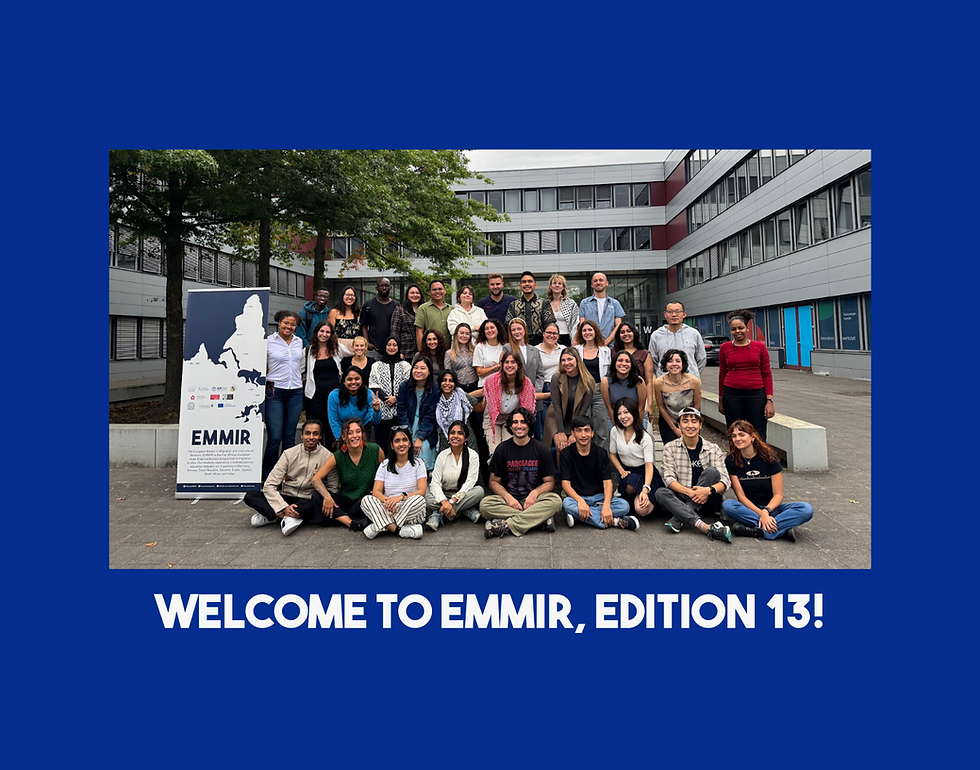EMMIRians visit migration NGO Caritas Stavanger during their second semester in Norway
- StudyEMMIR

- Feb 17, 2025
- 2 min read
Updated: Feb 24, 2025

On February 14 2025, EMMIR Edition 12 students, currently in their second semester in Norway, visited Caritas Stavanger, an organization that plays a crucial role in supporting migrants and refugees in the region. The visit provided an opportunity to see how NGOs assist newcomers in navigating life in Norway, while also shedding light on the challenges these organizations face in delivering essential services.
Caritas Stavanger, and their Resurssenter (Resource Centre), offers a wide range of support to migrants and refugees, focusing on legal guidance, language courses, employment assistance, and social integration. Many newcomers rely on their advisory services to understand their rights, access social benefits, and navigate Norway’s legal and immigration systems. Norwegian language classes are another critical service, helping migrants gain the skills they need for work and education, though high demand often leads to long waitlists. The organization also provides employment support by offering guidance on job applications, work rights, and networking opportunities.
Beyond these practical services, Caritas fosters social inclusion through cultural events, storytelling sessions for children, and community-building activities that help migrants feel a sense of belonging in their new environment.
During the visit, Caritas Operations Manager Vanesa Castanery introduced students to the organization’s mission and services and led discussions on the broader role of NGOs in migration support and policy. The discussion included the challenges that migrants and refugees face in Norway specifically, as well.
The session reinforced how 'integration' is not just about legal status and documentation but also about access to language, work, and community networks. Students learned that while NGOs play an essential role in filling gaps in systems, they also face significant challenges, including limited resources and high demand for services. Many migrants struggle to access the support they need because funding constraints make it difficult for organizations to reach everyone who requires assistance.
A major topic of discussion was the importance of community-based support systems. Vanesa emphasized that integration efforts are not solely the responsibility of migrants but also depend on the engagement of local communities. Creating an inclusive and supportive environment requires active participation from both newcomers and long-term residents.
Students expressed strong interest in finding ways to contribute, and Vanesa shared information about volunteer and internship opportunities at Caritas Stavanger.
Engaging with local organizations allows EMMIR students to apply their academic knowledge in real-world settings while directly supporting the communities they study. The visit was a reminder that migration policy does not exist in a vacuum, it shapes real lives.
NGOs like Caritas provide critical services, but long-term solutions require sustainable funding, inclusive policies, and community collaboration.











nixtoto nixtoto nixtoto
bydplay bydplay bydplay bydplay
pascol4d adalah bandar oline game slot dan toto terbaik di Indonesia!
Click Here
link login toto slot terbaik pada hari ini!